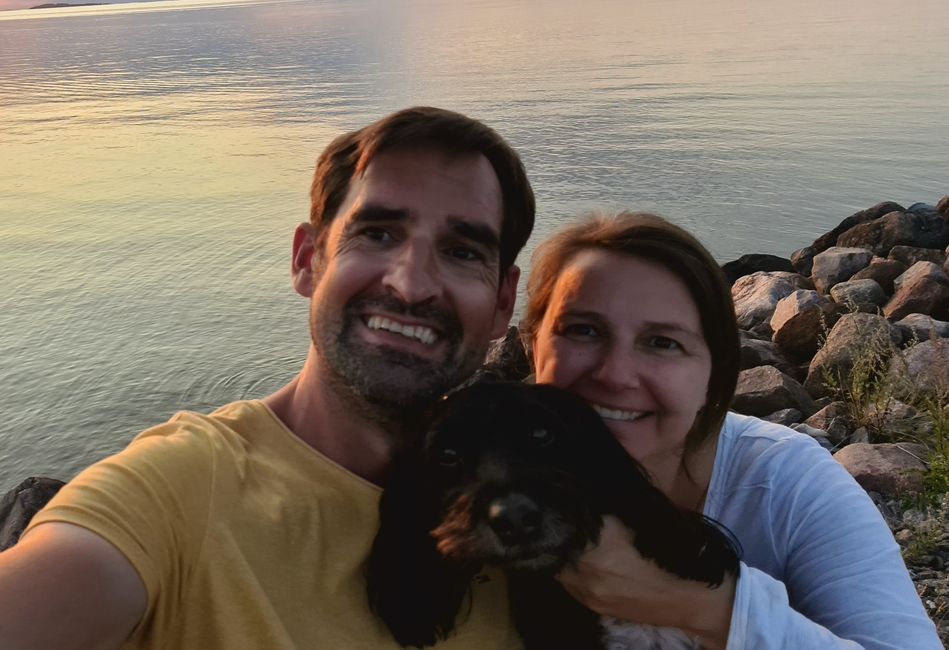Mont-Saint-Michel: Otu n'ime ihe nlegharị anya kacha ewu ewu na France
Ebipụtara: 26.08.2020
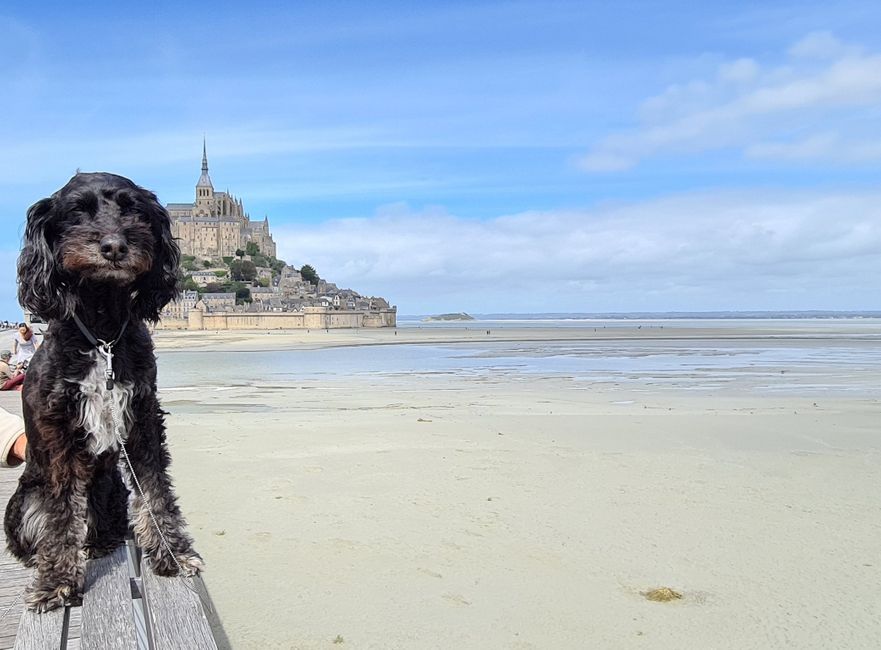
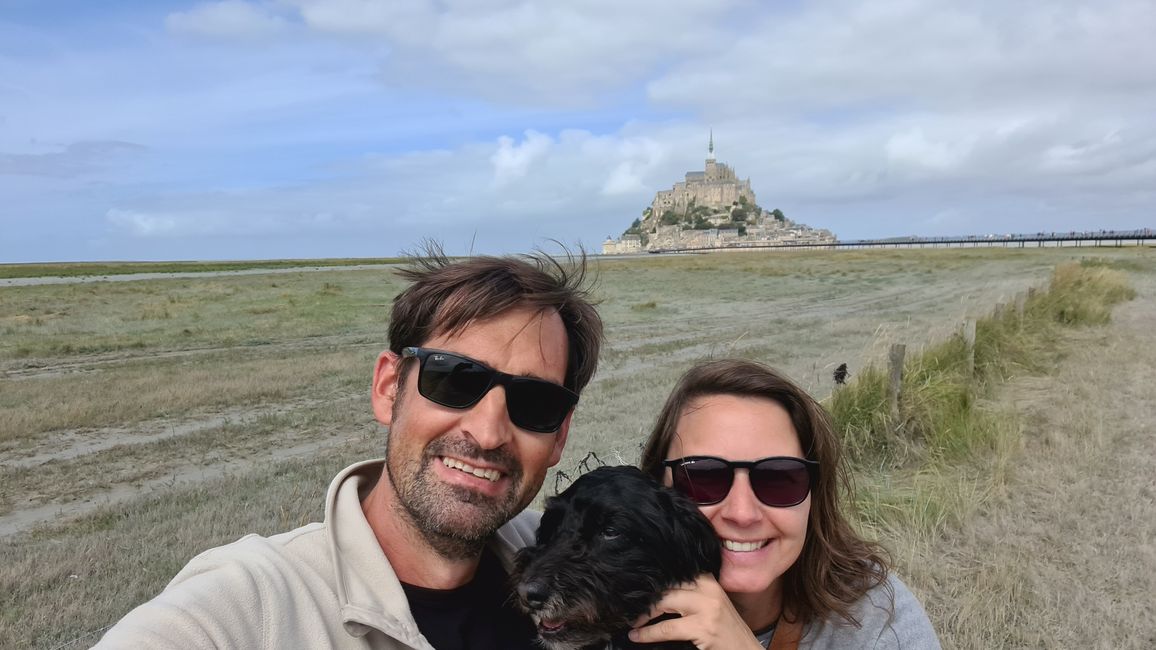
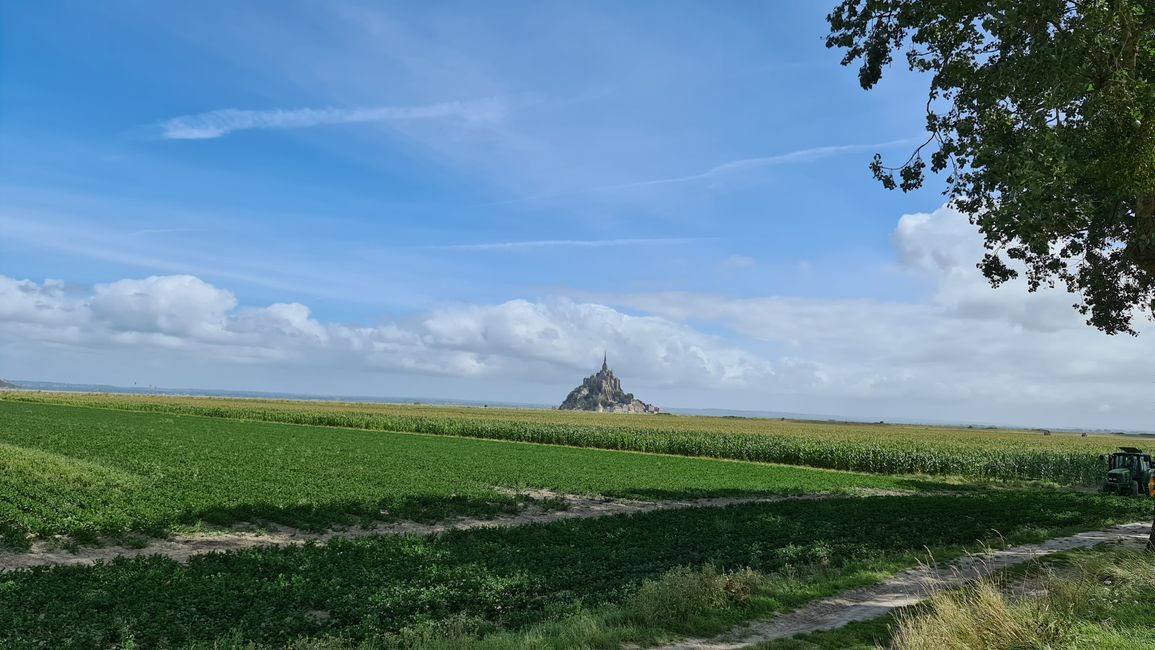
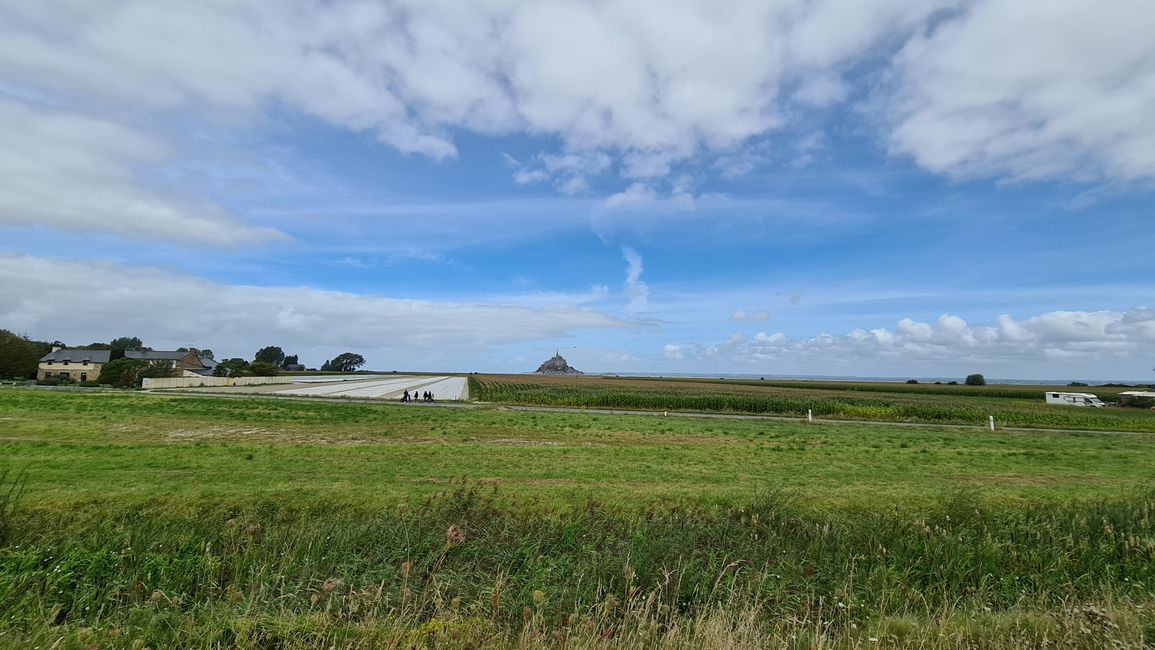
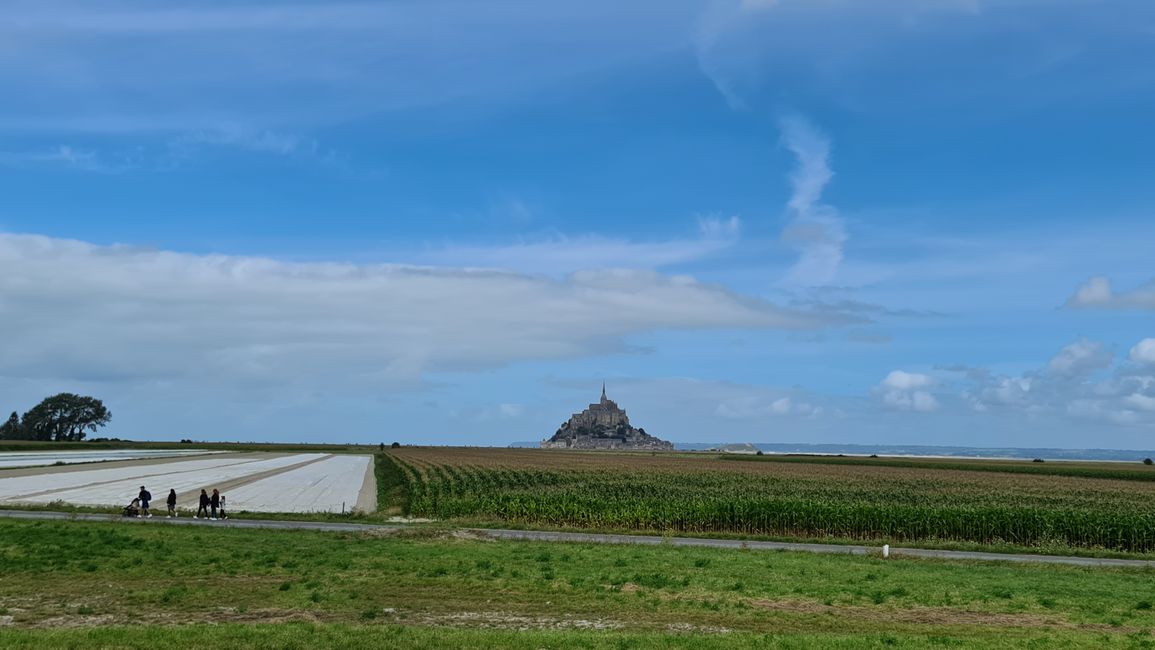
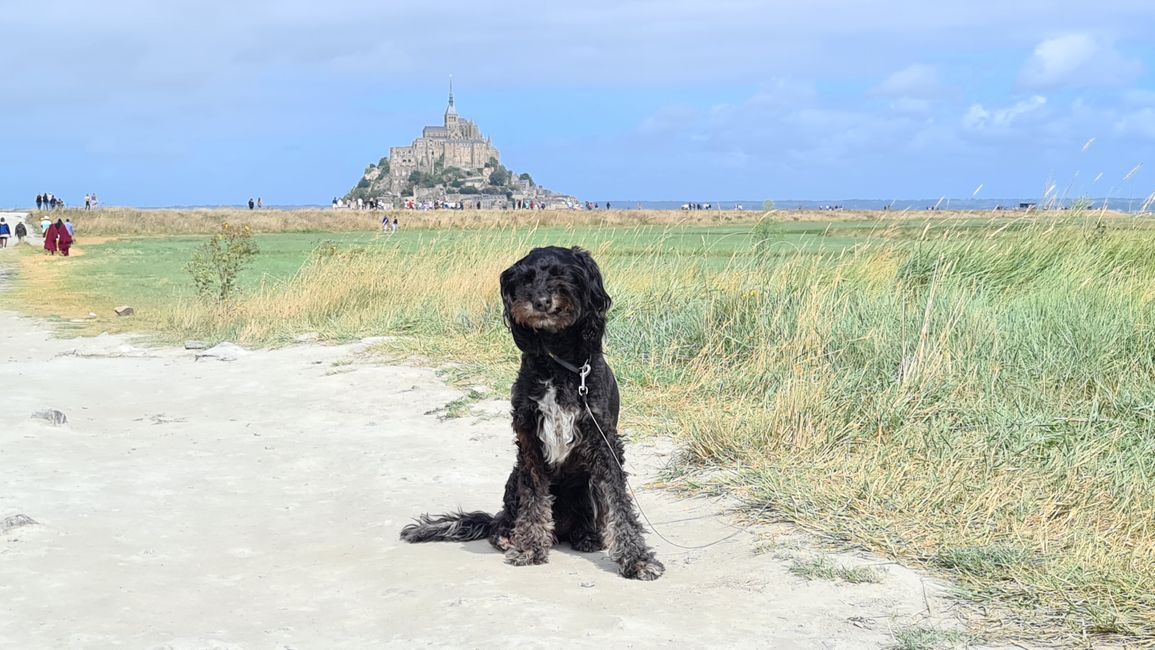
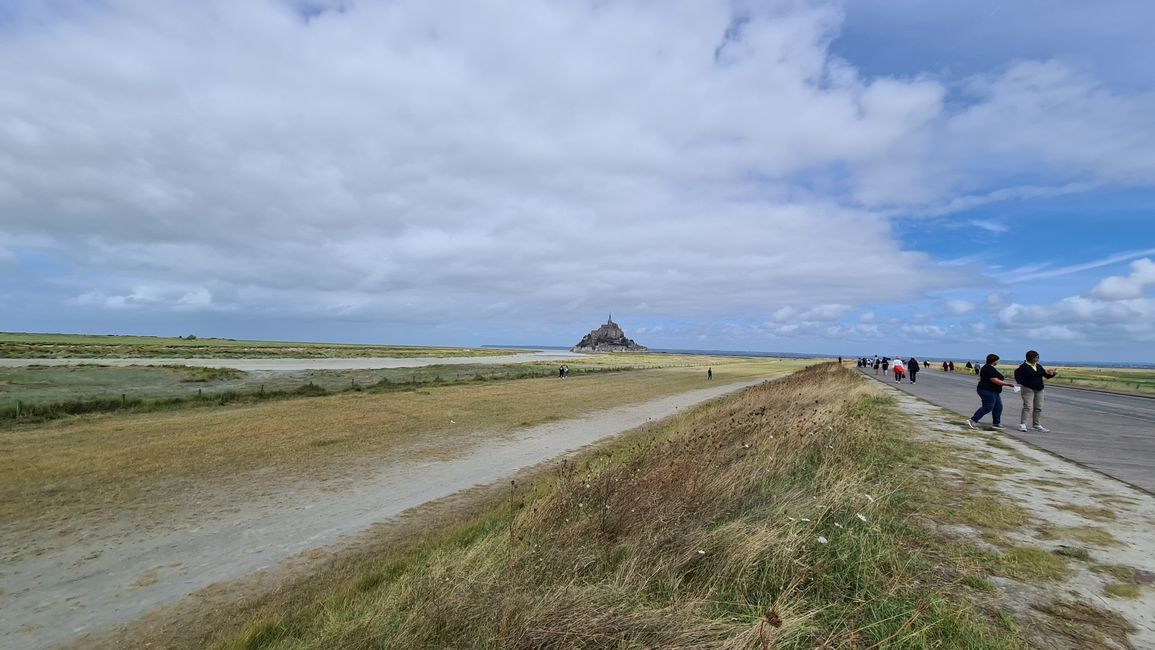

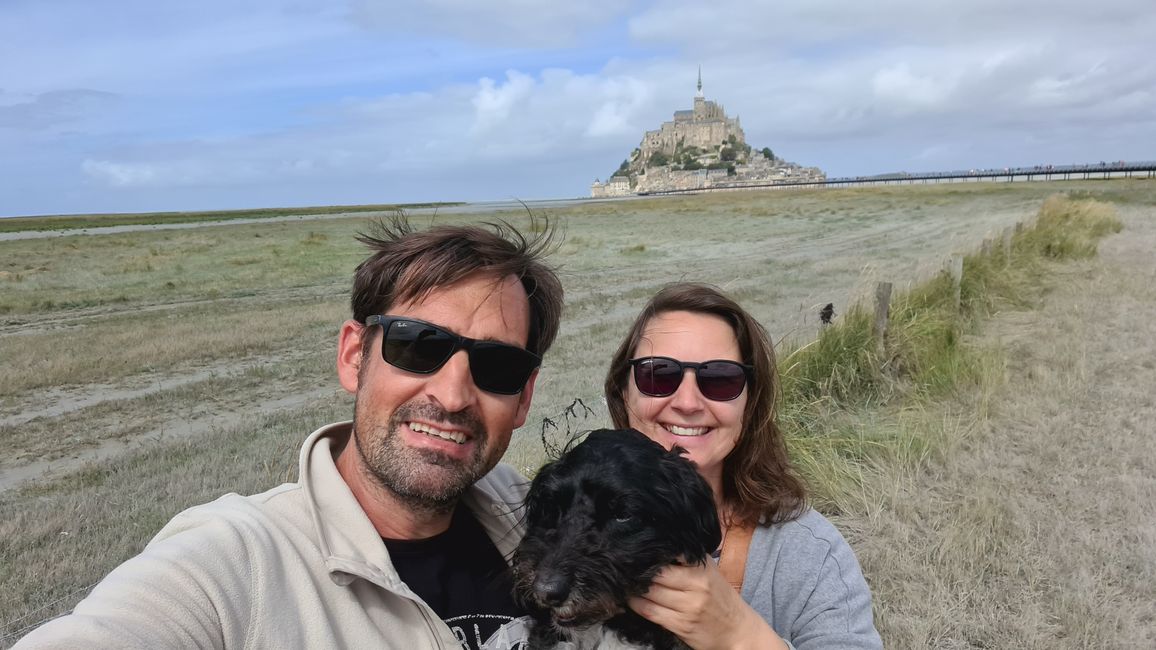
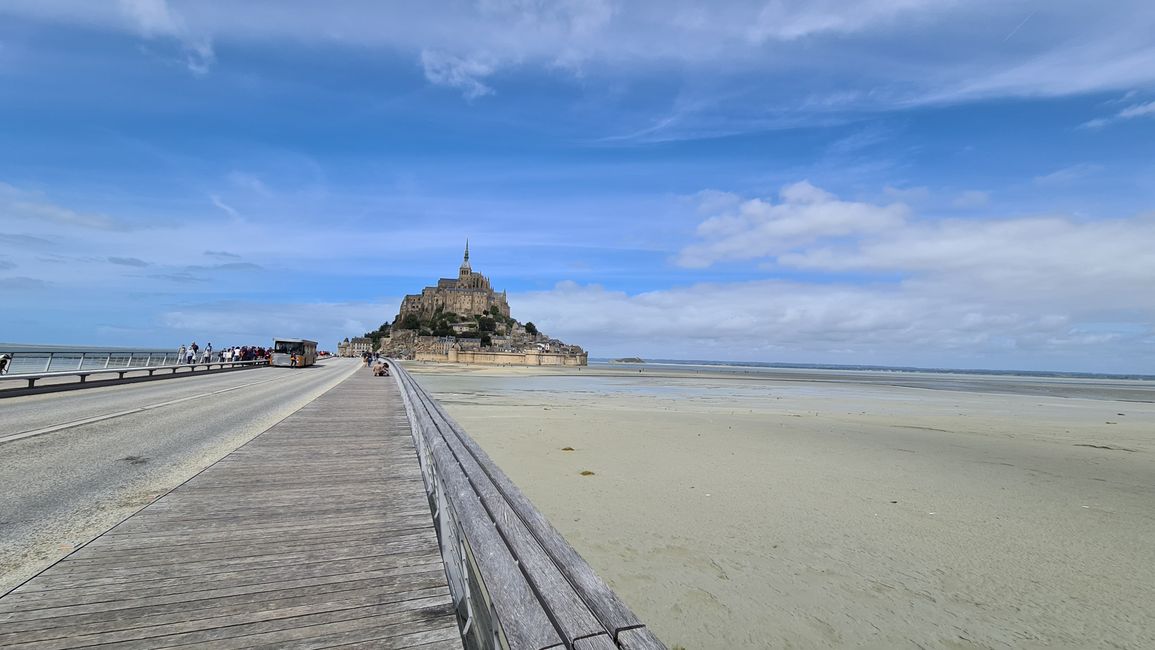
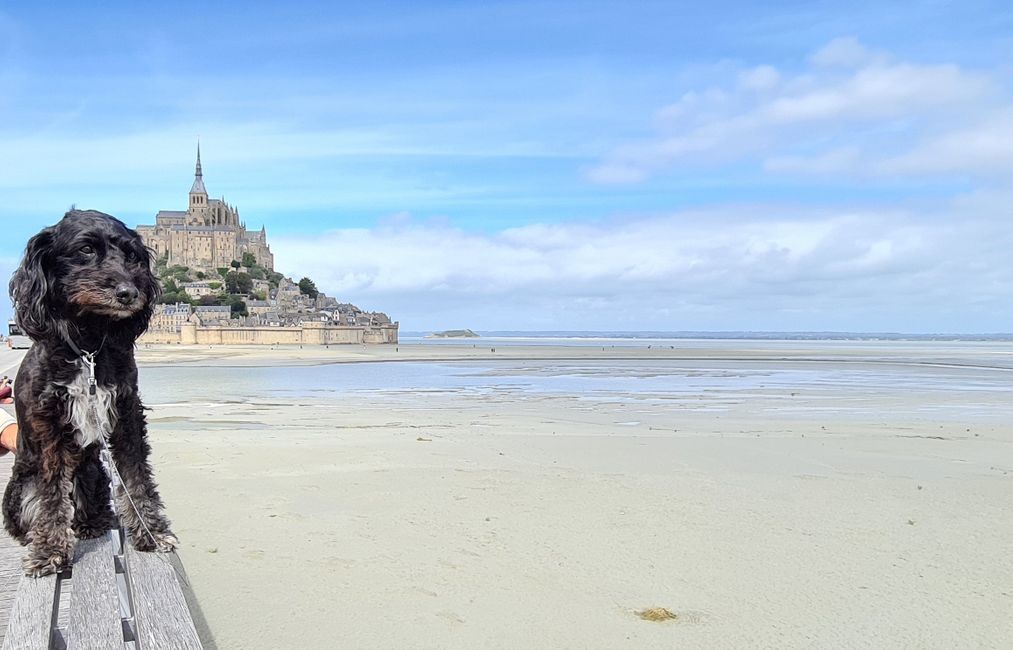
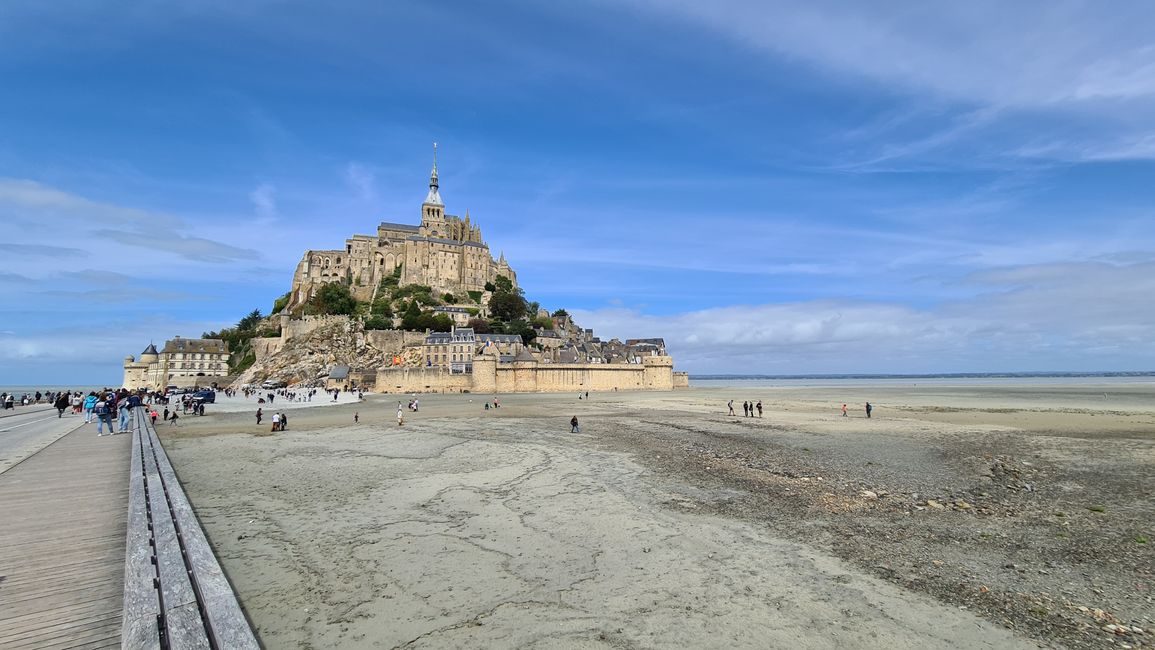
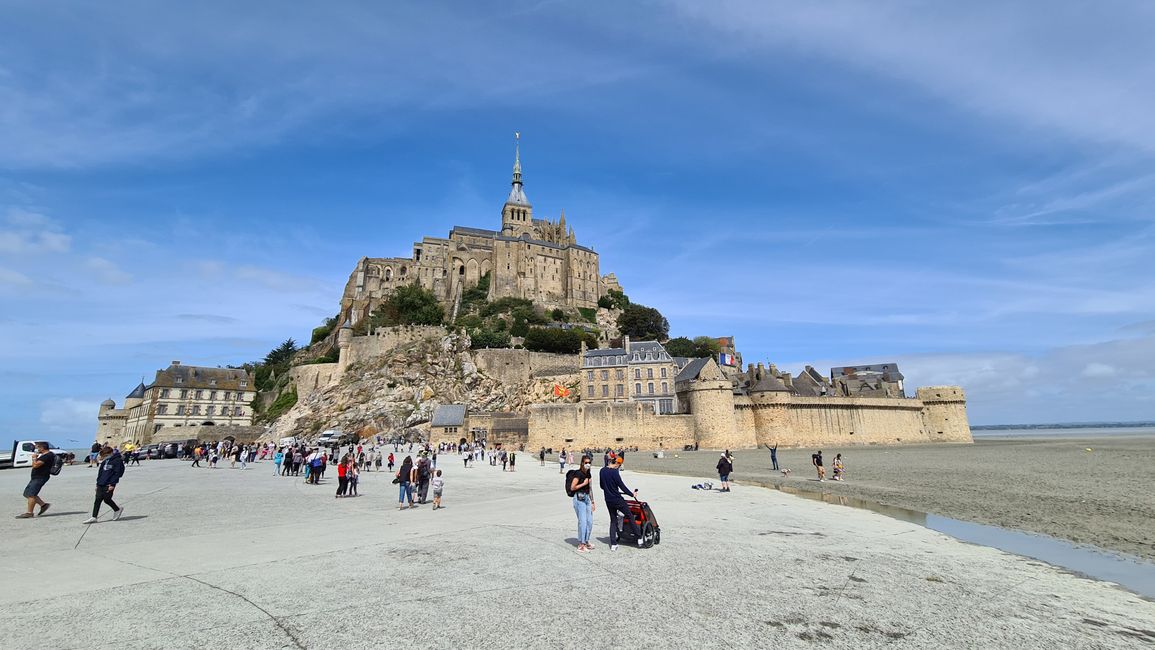
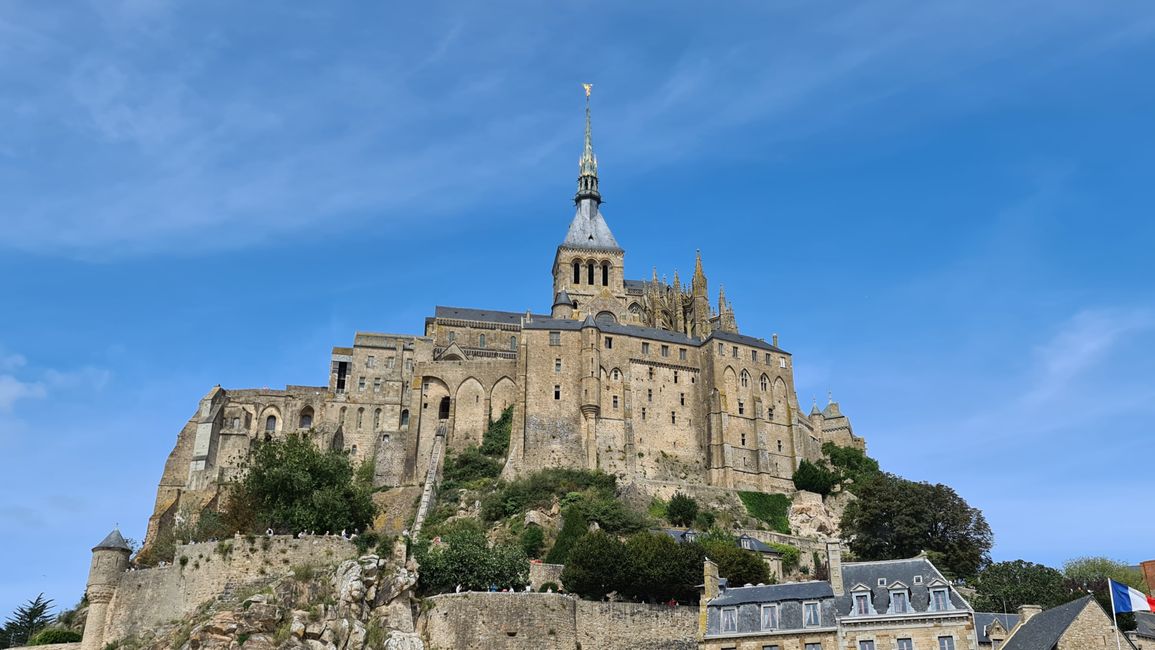
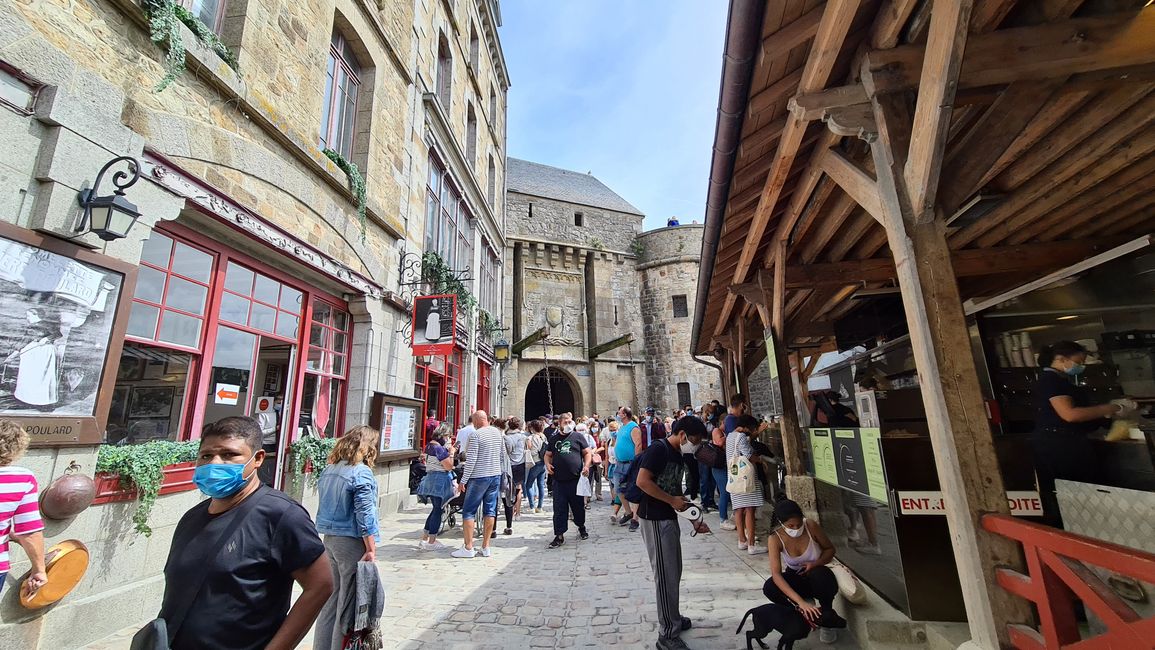
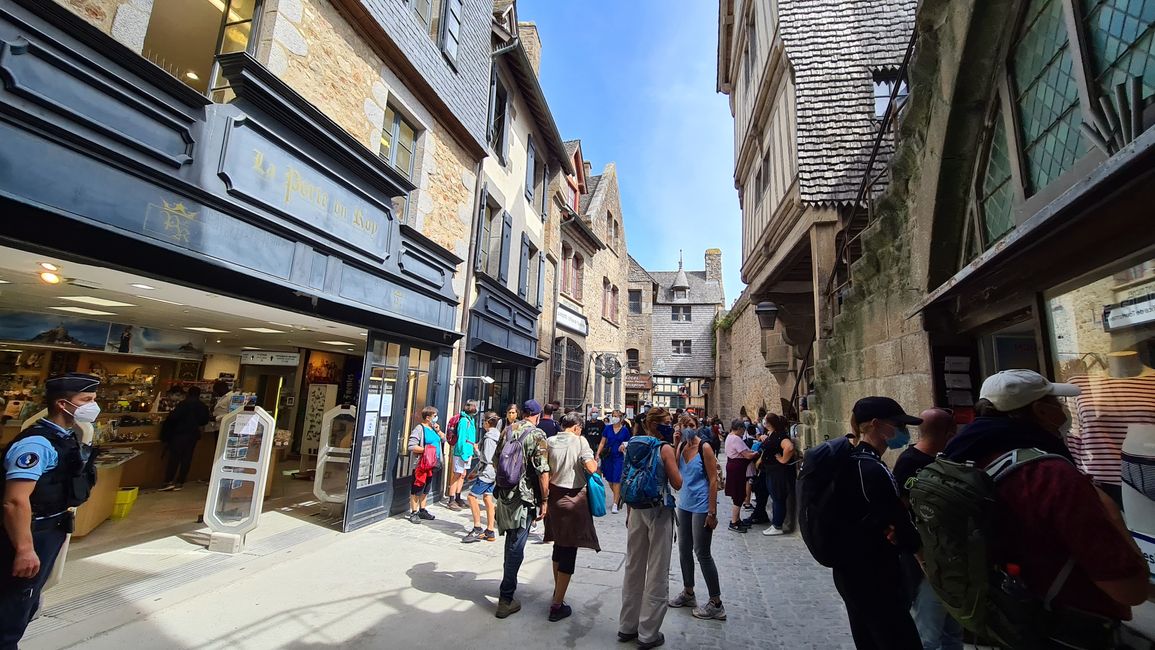
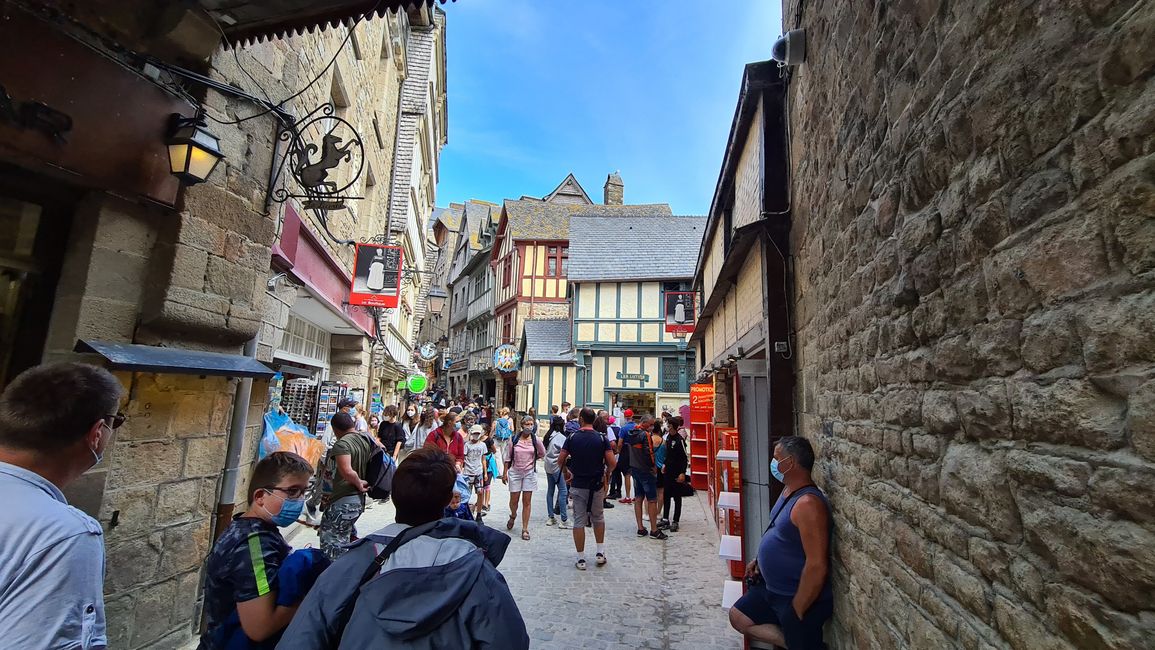
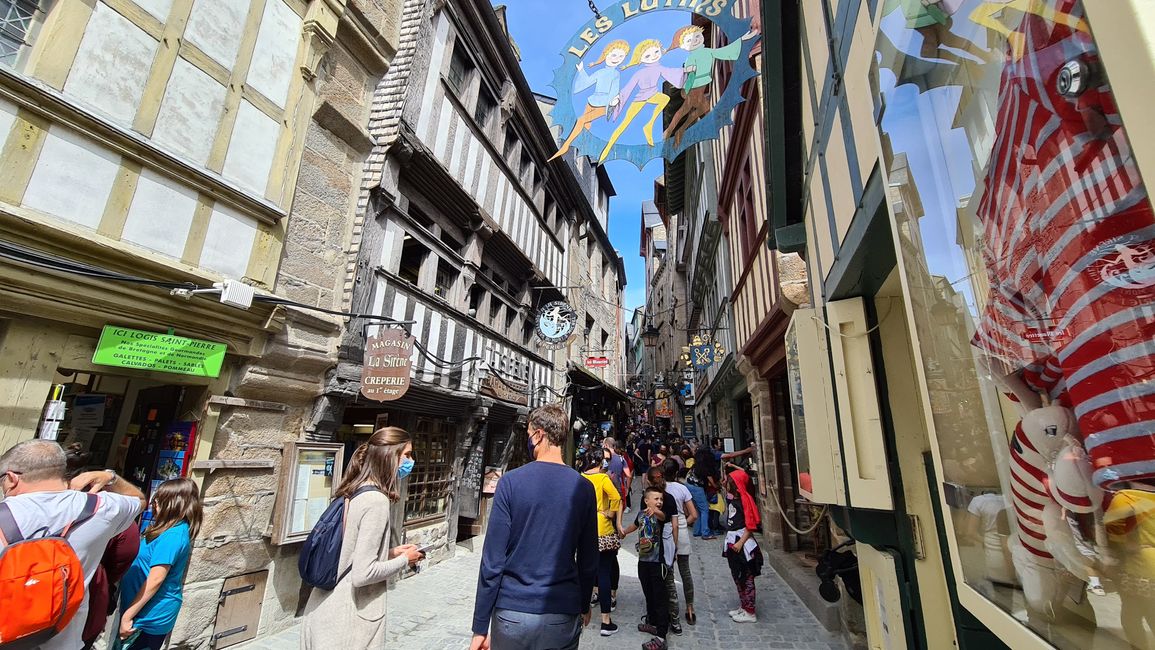
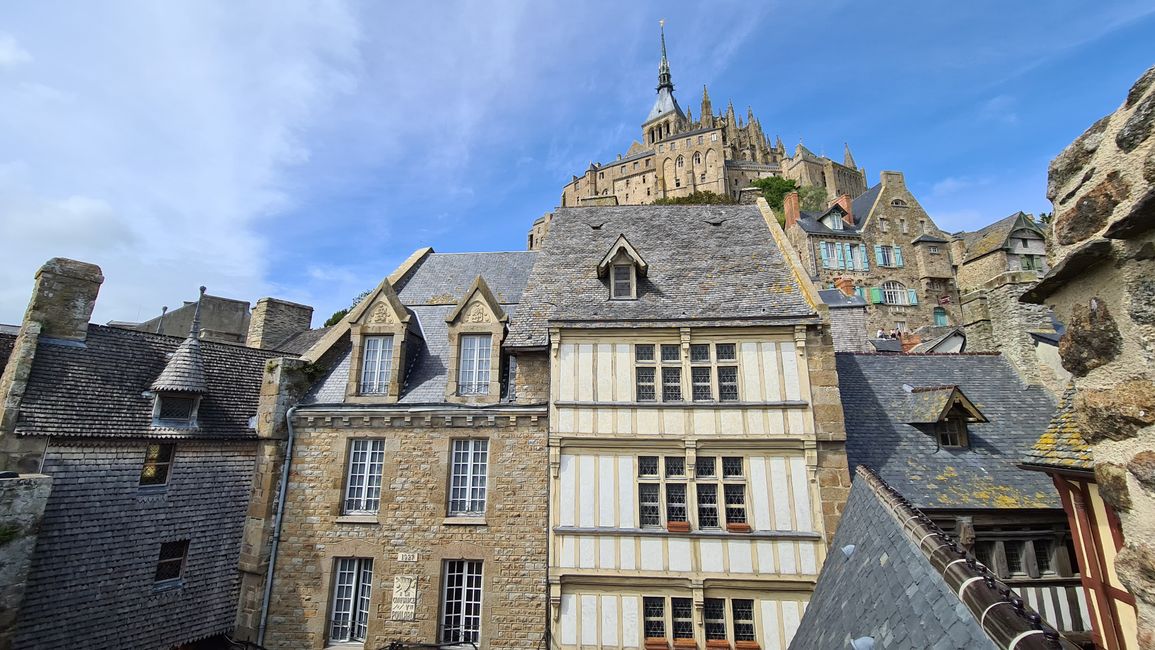
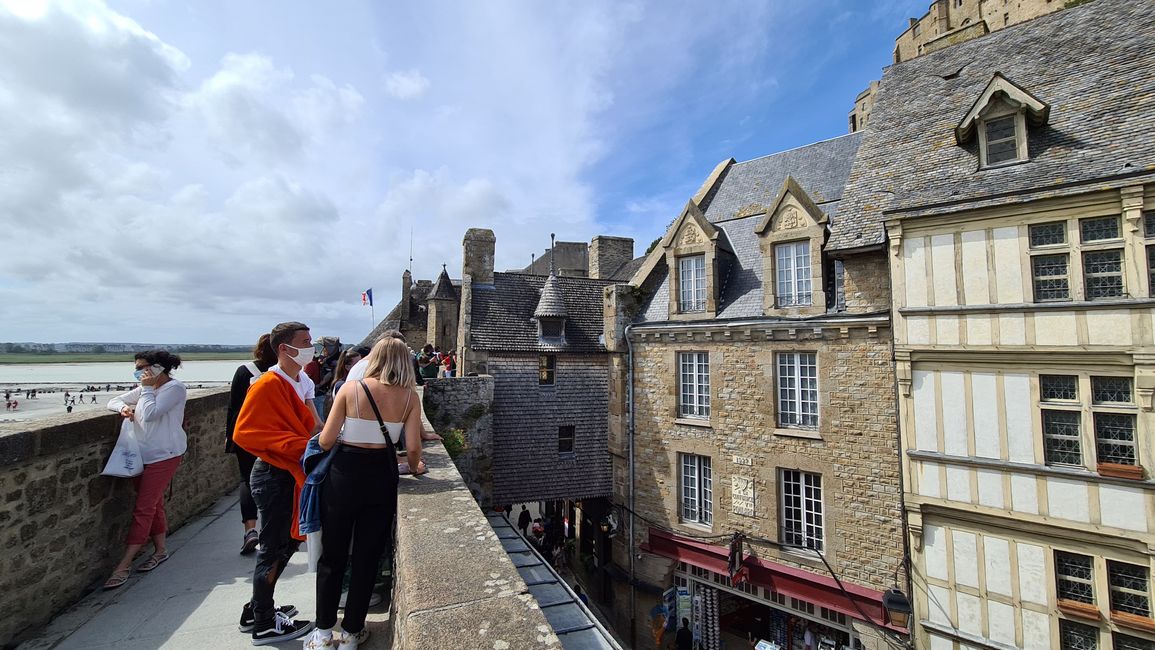
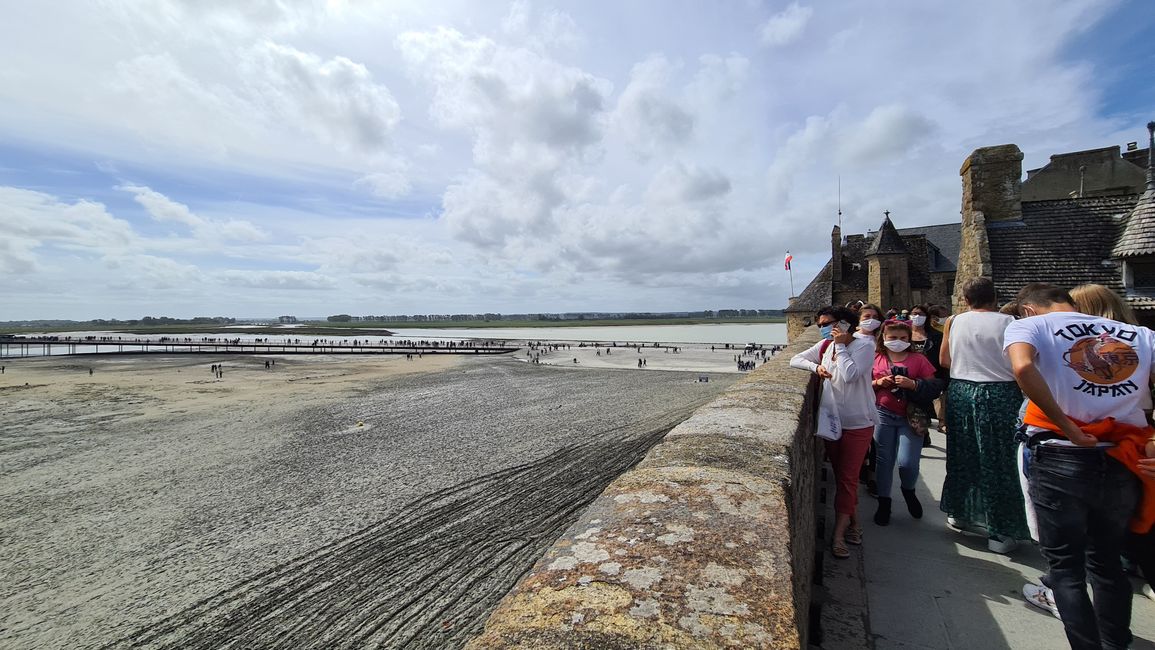
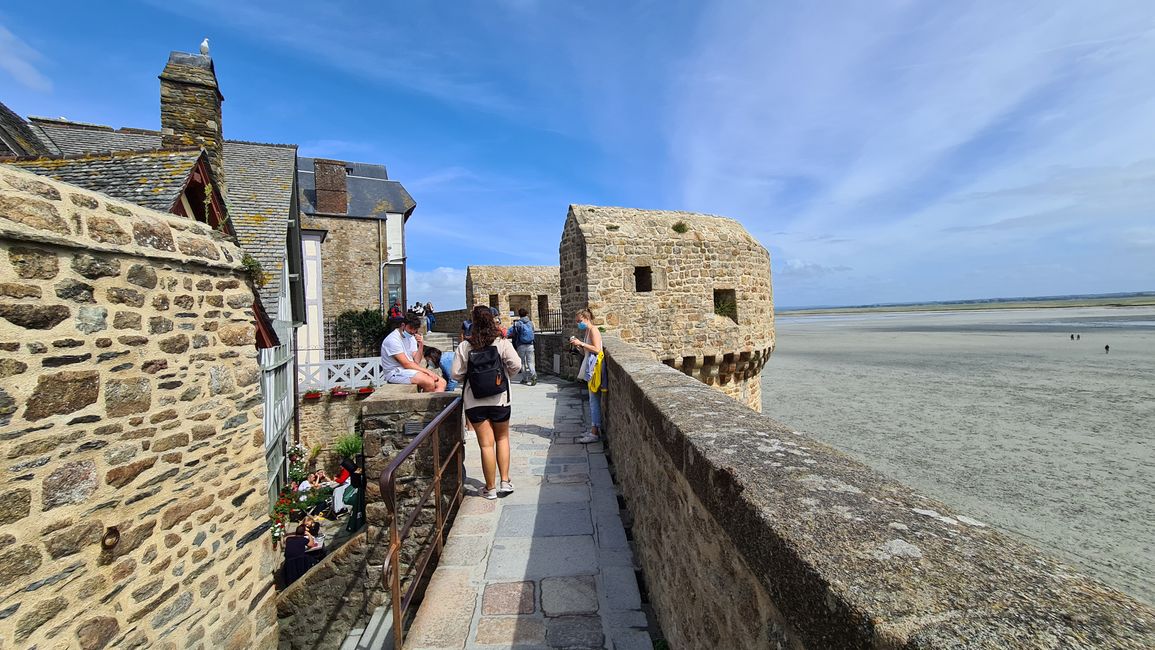
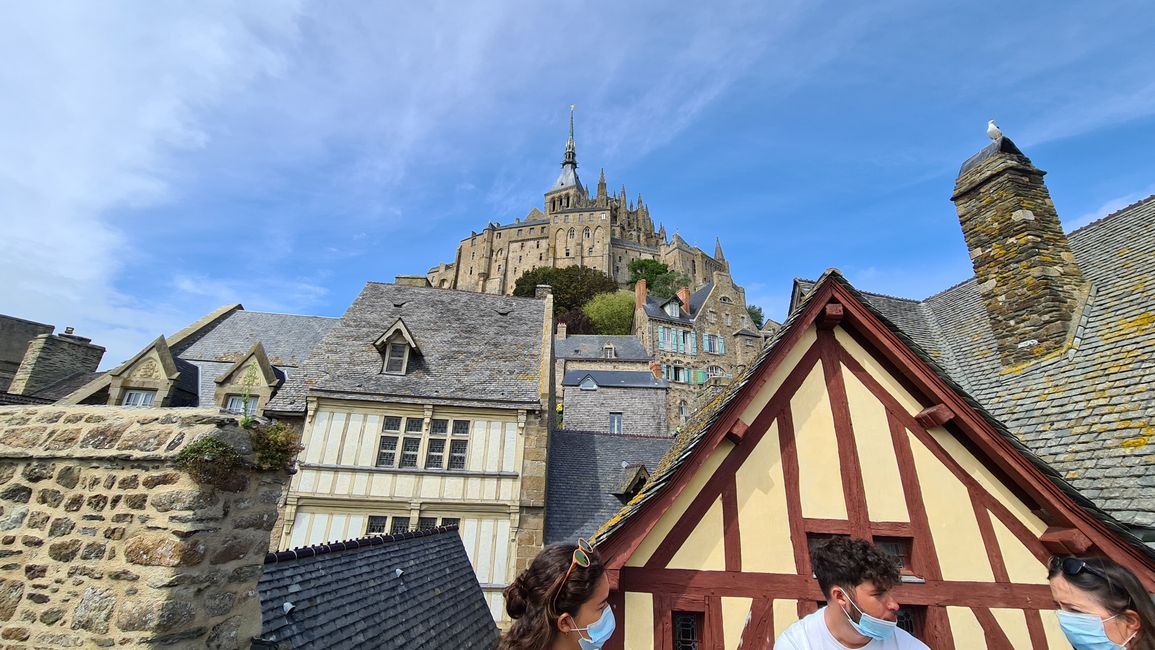
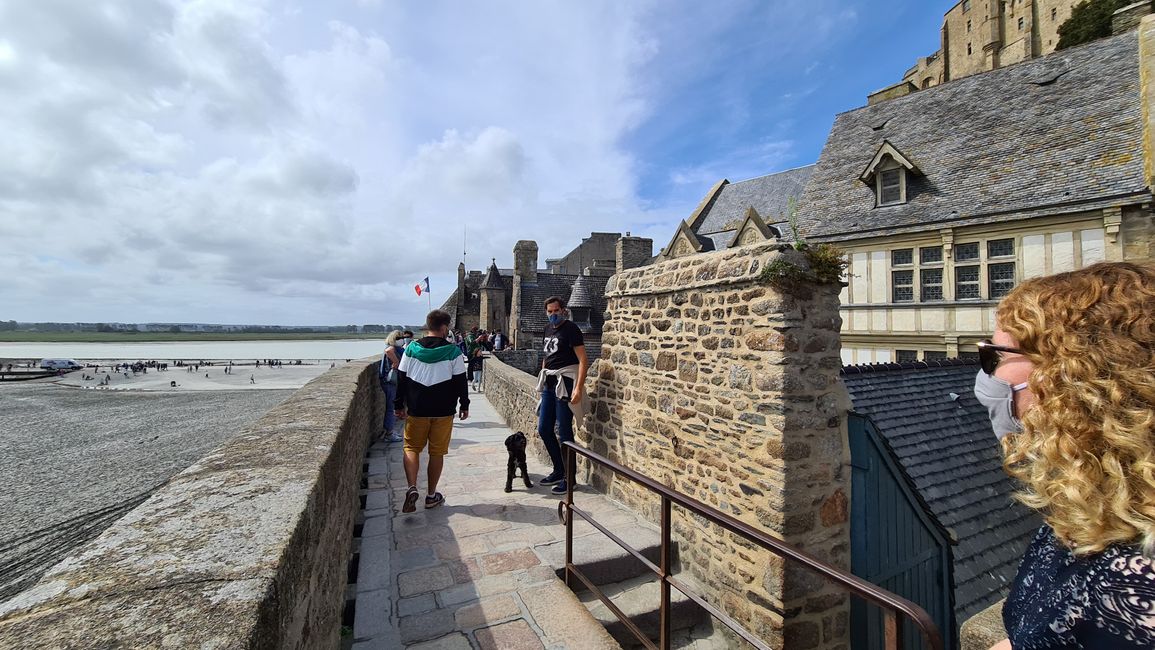
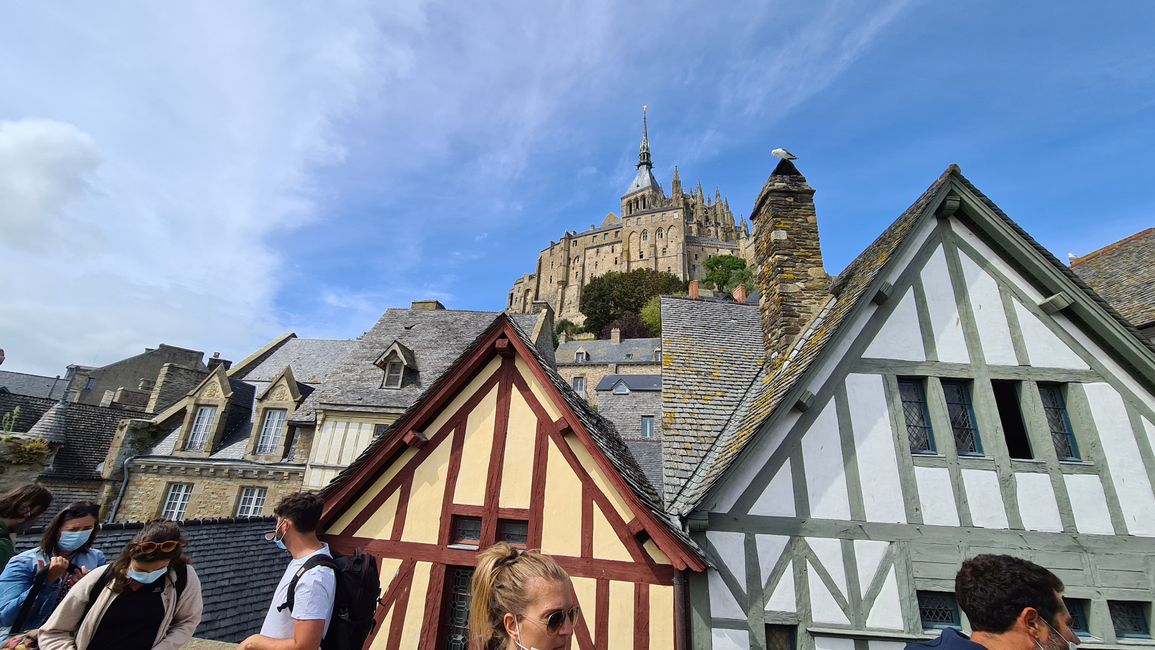
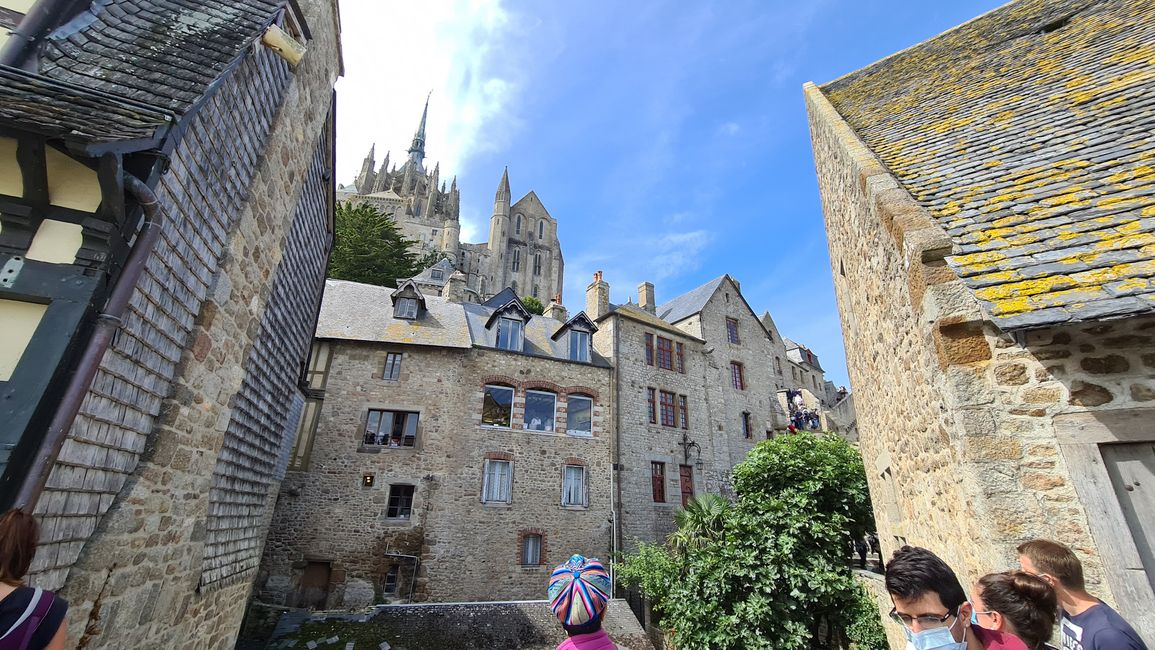
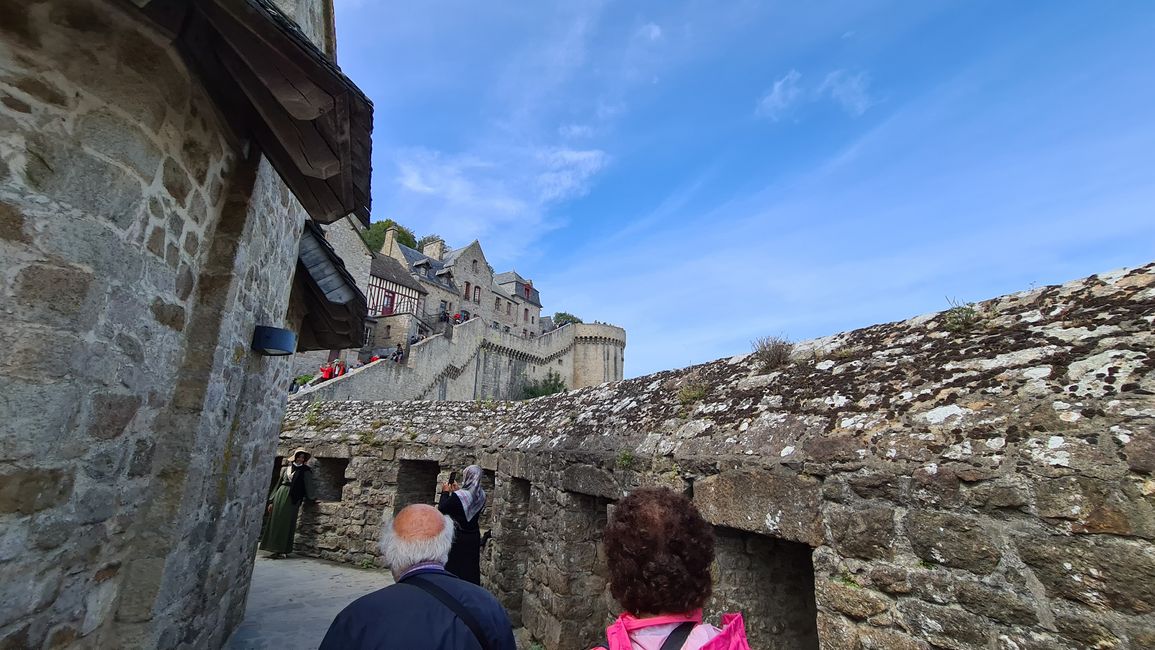
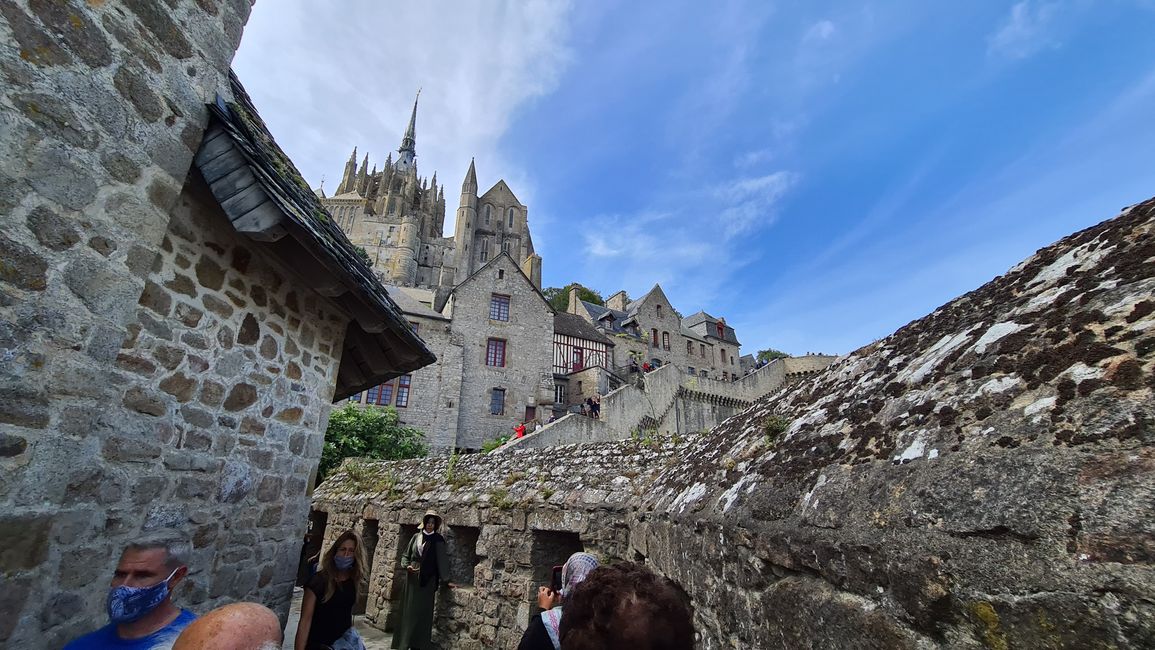
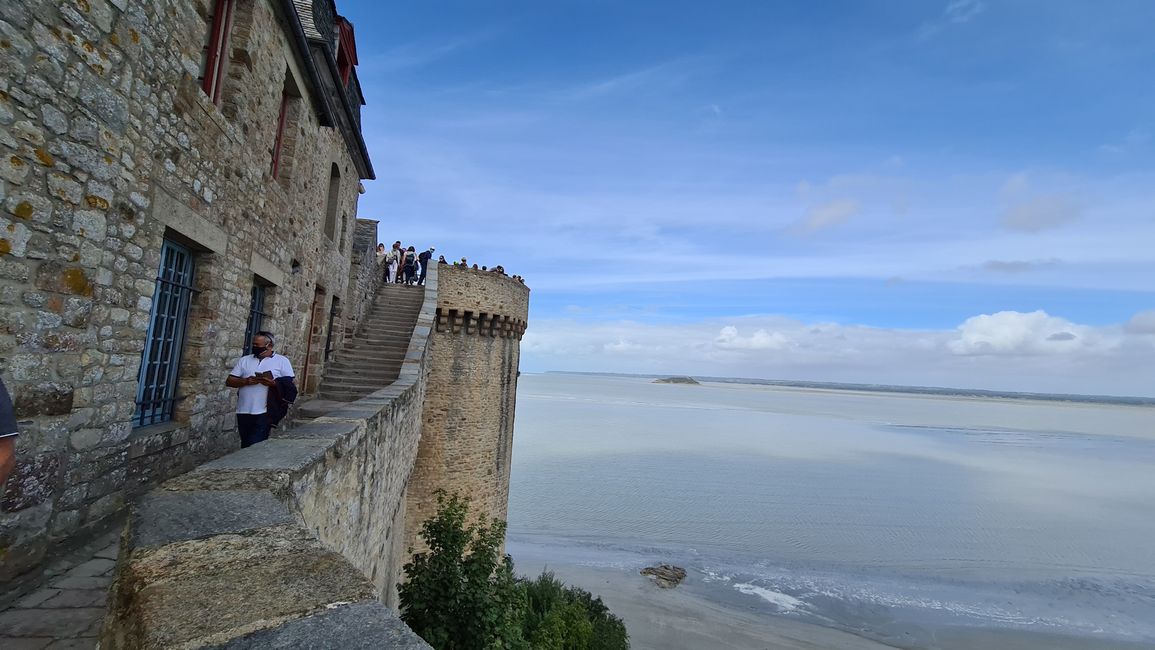
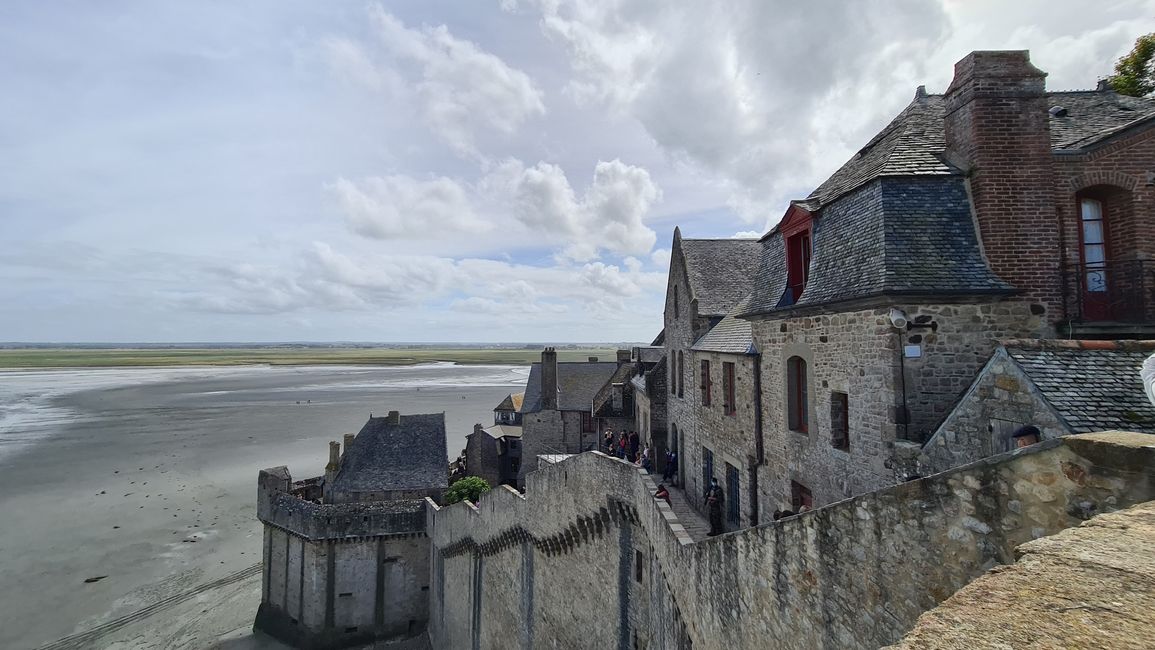
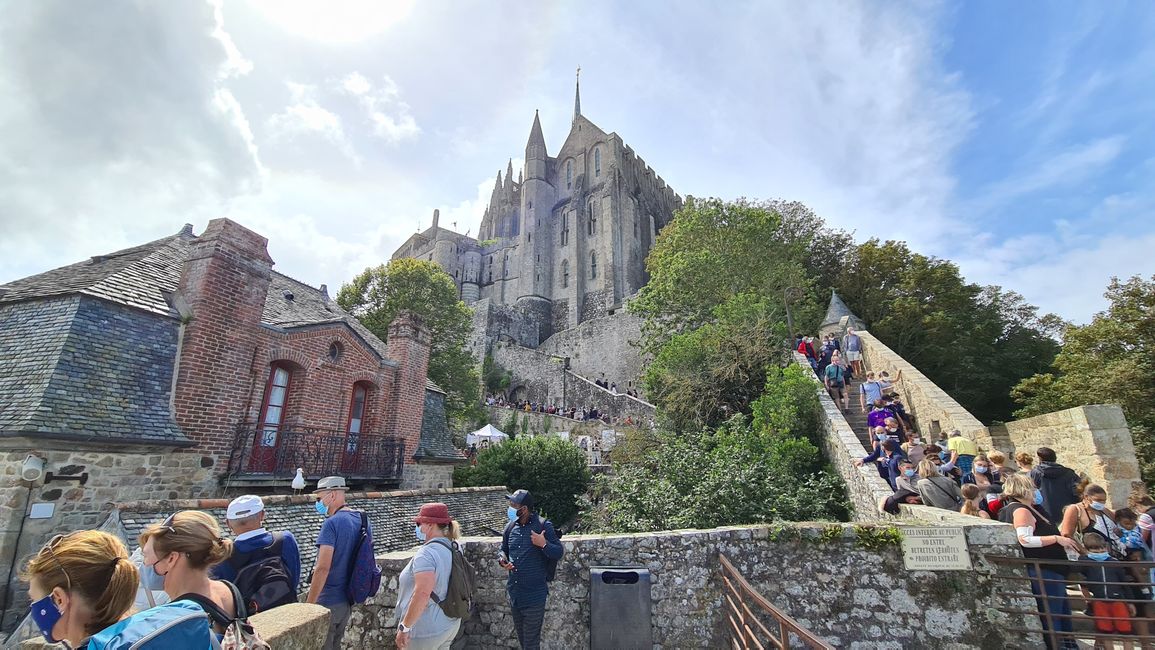
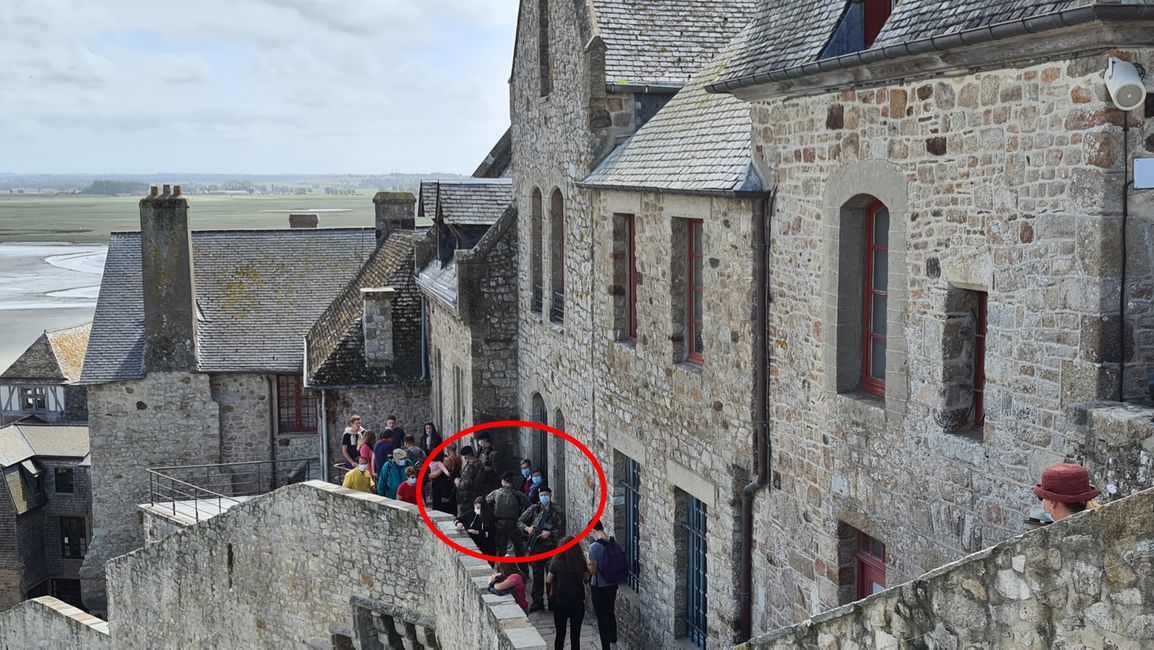
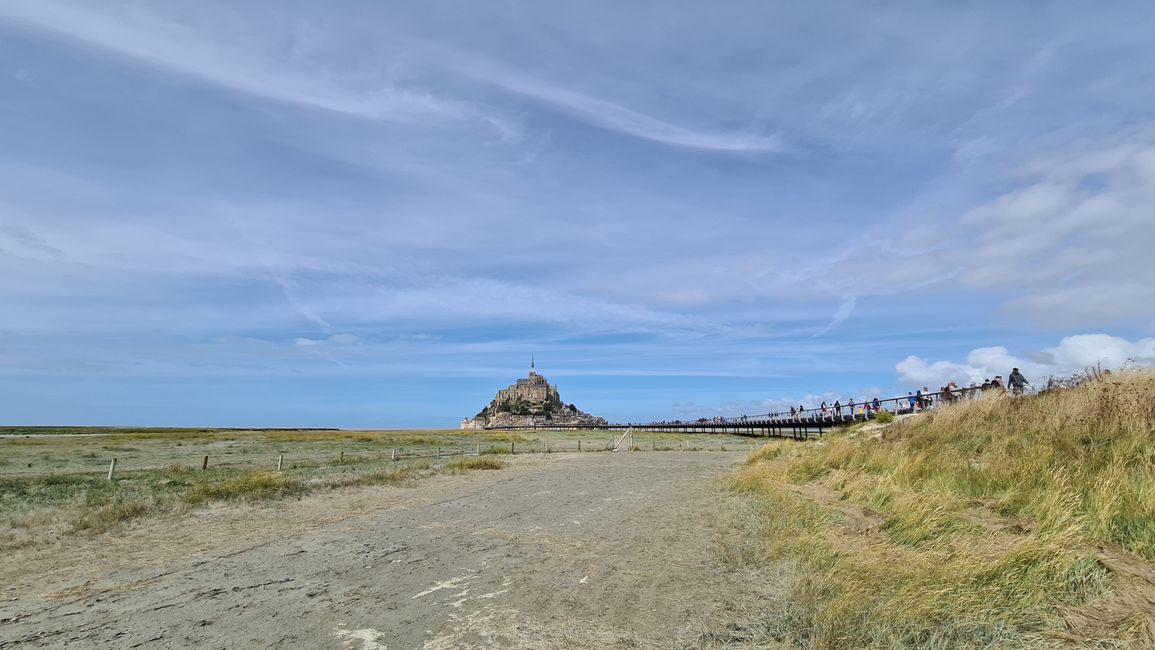
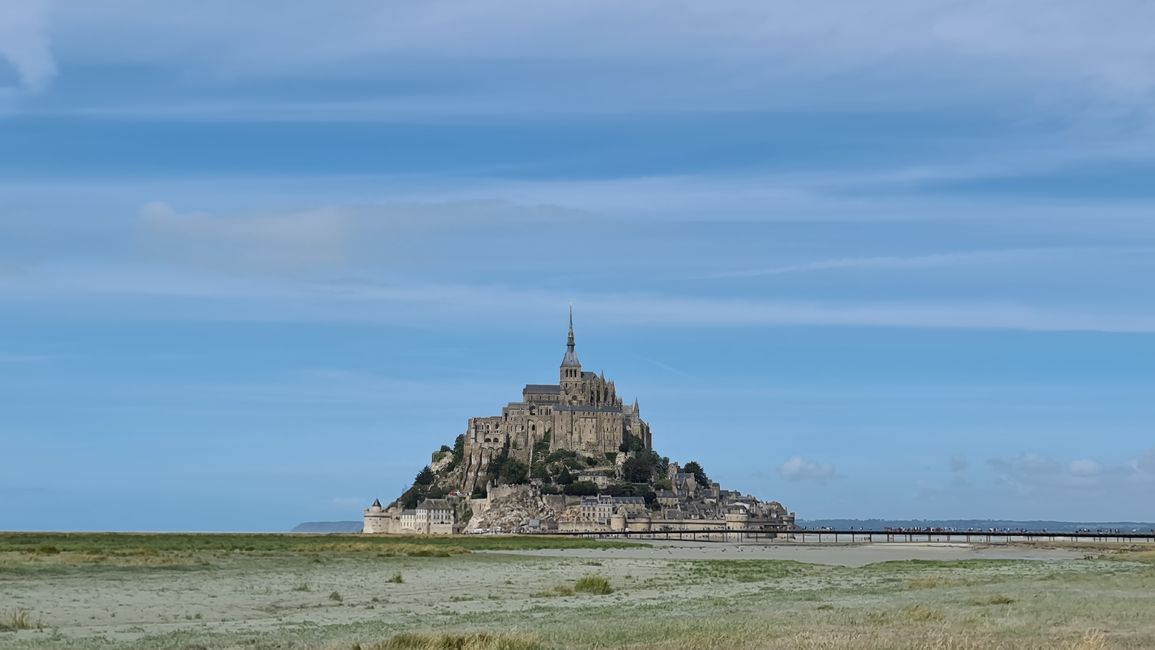
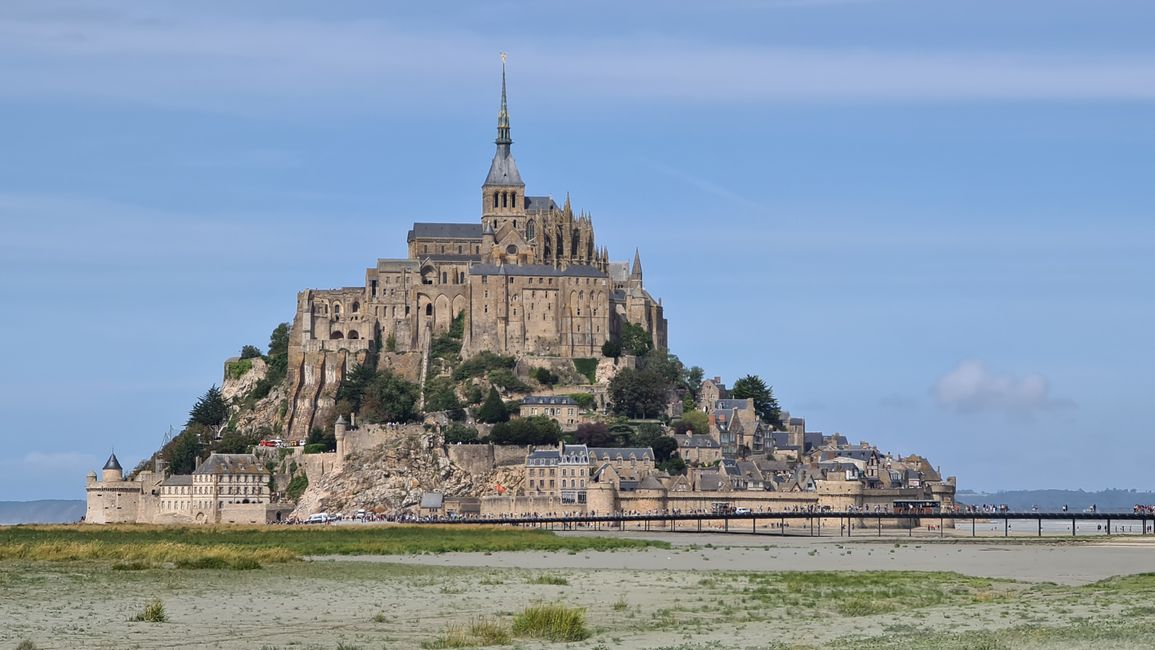

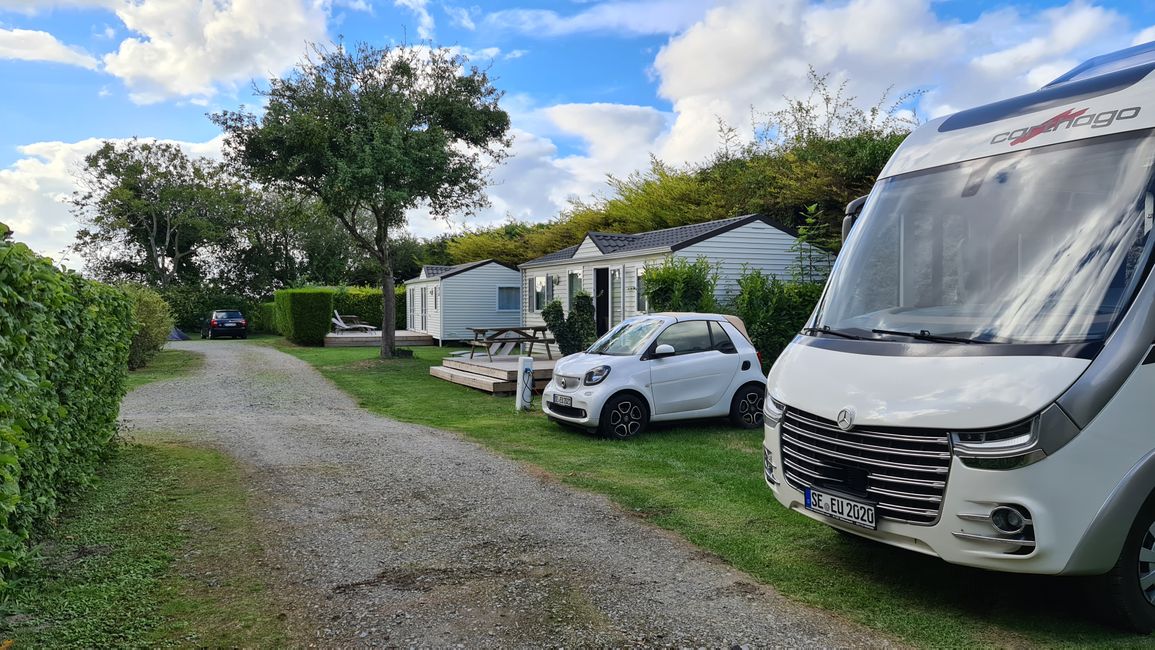
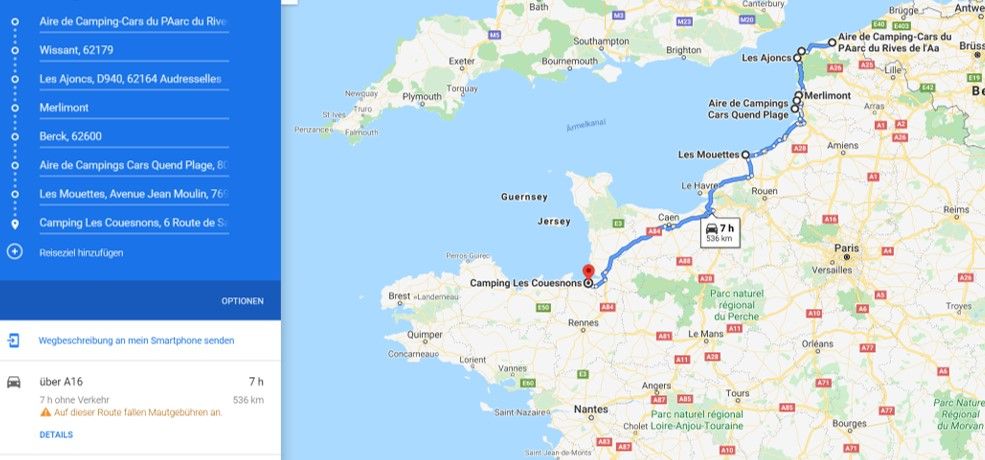
Debanye aha na akwụkwọ akụkọ
Yesterday we made a "big leap" and drove north of "Le Havre" to behind "Mont Saint Michel".
Although we are 1,200 km south of "home", unfortunately the weather is not much better. It has been very windy for the past few days, with occasional rain, alternating with white clouds and occasional sunshine. At least today we were lucky because it didn't rain and the sun occasionally shone from noon onwards.
We used the beautiful day to visit one of France's tourist highlights, but we didn't stay long. As mentioned before, although a mask is also mandatory outside in France, as you can partly see in the pictures, it was so crowded that wearing a mask alone is probably not a solution. There is no restriction on the number of people or something like a designated one-way route (as is often the case in Germany), so you are sometimes pushed around with the crowd! So we quickly left the impressive interior.
The pyramid-shaped, towering abbey, located on a rocky island about a kilometer off the coast in the wadden sea of the English Channel, is surrounded by the sea at high tide and offers an impressive sight even at low tide.
The Mont Saint Michel and its bay have been part of the "UNESCO World Heritage Site" since 1979. Its bay is the scene of the most powerful tides in Europe.
The founding of the abbey is said to date back to an apparition of the Bishop of Avranches: in 708, he was repeatedly instructed in a dream by the archangel Michael to build a church. And so they began to build a structure that would take hundreds of years to complete.
In the 10th century, the first Benedictines finally settled in the abbey. The church Notre-Dame-sous-Terre, in which the wedding of Duke Richard II and Judith de Bretagne took place in 996, dates back to the 10th century. With this event, the Benedictine monastery experienced a long-lasting upswing, accompanied by numerous construction projects.
Over 500 years, work was done on the facilities. The abbey was transformed into a veritable fortress that withstood all attacks during the Huguenot Wars. During the French Revolution, the monastery was abandoned and used as a prison for a long time. Since the sixties, some Benedictines have been living here again and filling the monastery grounds with spiritual life.
Romanesque, Gothic and many other influences make the building a complex whole that is difficult to describe, in which a variety of styles can be found. The long construction period, the size of the construction project itself, the difficult terrain on which the Mount Saint Michel stands, numerous plan changes and many other factors have contributed to the fact that today you will find a very complex ensemble on Mount St. Michel. In the Middle Ages, this structure at dizzying heights was considered a true miracle of God.
Even today, Mount St. Michel is an important pilgrimage destination for many believers. But above all, it attracts travelers.
More than three million people are drawn to the unique atmosphere here every year.
We have put together a selection of photos for you, even though it is of course much more impressive in reality!
As shown in a photo, soldiers with heavy arms patrolled closely past us within the abbey. It was a strange feeling to walk so close to this weaponry. Although somehow it didn't look real at all 😉
As always, warm greetings to all of you 🤗
Debanye aha na akwụkwọ akụkọ
Zaa
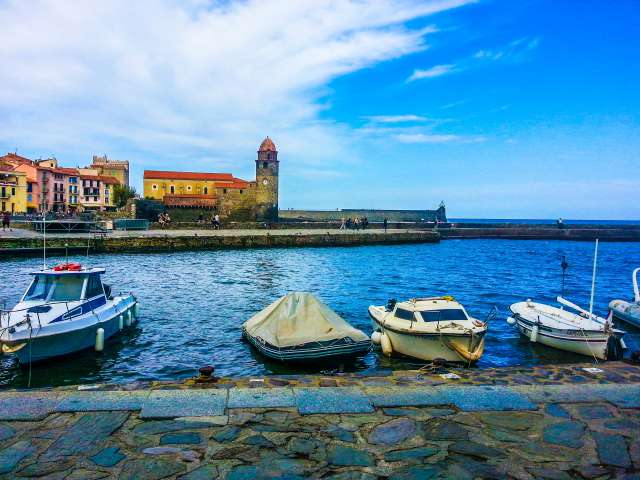
Akụkọ njem France

